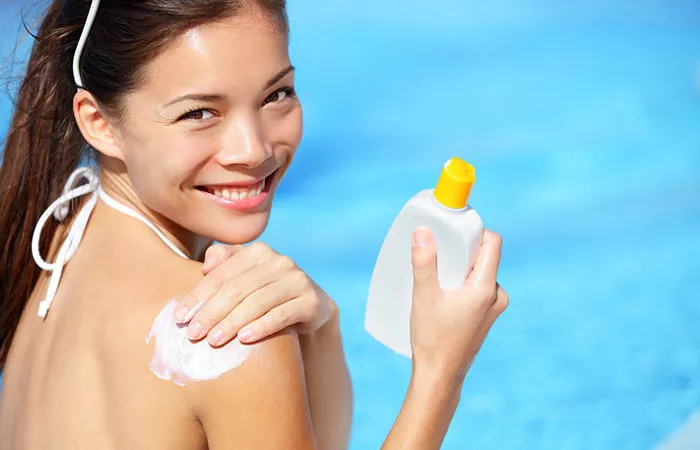Swimming is a highly rewarding sport, offering a myriad of physical and mental health benefits. However, the constant exposure to chlorine and other chemicals in pools, as well as the sun and salt in open water, can take a toll on a swimmer’s skin. Proper skin care is essential for swimmers to maintain healthy, hydrated, and irritation-free skin. This article delves into the best practices for swimmers to care for their skin, covering pre-swim, during-swim, and post-swim routines, as well as addressing common skin issues faced by swimmers.
Understanding the Effects of Swimming on Skin
Chlorine and Its Impact
Chlorine is widely used in pools to kill bacteria and keep the water clean. However, while it serves this essential purpose, chlorine can also strip the skin of its natural oils, leading to dryness, itching, and irritation. Prolonged exposure to chlorine can exacerbate these issues, causing more significant skin damage over time.
Saltwater and Its Effects
Swimming in saltwater, such as in oceans or saltwater pools, presents a different set of challenges. While saltwater is generally less irritating than chlorine, it can still cause dryness and dehydration of the skin. The abrasive nature of salt can also lead to chafing and irritation, particularly in areas where skin rubs against swimsuits or other surfaces.
Sun Exposure and UV Damage
For swimmers who enjoy outdoor swimming, sun exposure is a significant concern. Prolonged exposure to ultraviolet (UV) rays can lead to sunburn, premature aging, and an increased risk of skin cancer. The reflective nature of water intensifies UV exposure, making effective sun protection a crucial part of a swimmer’s skincare routine.
Pre-Swim Skincare Routine
Hydration is Key
One of the most critical aspects of skincare for swimmers is maintaining proper hydration. Drinking plenty of water before swimming helps keep the skin hydrated from the inside out. Well-hydrated skin is more resilient to the drying effects of chlorine and saltwater.
Applying a Barrier Cream
Before hitting the pool or the ocean, swimmers should apply a barrier cream or lotion to their skin. Products containing ingredients like petroleum jelly, lanolin, or silicone can create a protective layer that helps prevent chlorine and salt from penetrating the skin. These creams act as a shield, reducing the amount of chemical absorption and subsequent irritation.
Sunscreen Application
For outdoor swimmers, applying a broad-spectrum sunscreen with a high SPF is non-negotiable. Swimmers should choose water-resistant sunscreens to ensure lasting protection. It is essential to apply sunscreen generously to all exposed areas, including the face, ears, neck, and the back of the legs. Reapplying sunscreen every two hours, or more frequently if swimming for extended periods, is crucial to maintaining effective sun protection.
During-Swim Skincare Tips
Wearing Protective Swim Gear
Swimmers can minimize skin exposure to chlorine and saltwater by wearing protective swim gear. Rash guards, swim caps, and goggles help shield the skin from direct contact with water, reducing the risk of irritation and dryness. These items also provide an additional layer of protection against the sun’s UV rays.
Rinsing Off Frequently
Taking breaks during swimming sessions to rinse off with fresh water can help reduce the amount of chlorine or saltwater on the skin. Freshwater rinses can wash away irritants and prevent them from accumulating on the skin’s surface. Many swimming facilities have showers available near the poolside for this purpose.
Avoiding Prolonged Exposure
While swimming is enjoyable, it is essential to avoid prolonged exposure to chlorine or saltwater. Taking breaks and alternating between swimming and relaxing can help mitigate the negative effects on the skin. Limiting the time spent in the water also reduces the risk of overexposure to harmful UV rays.
Post-Swim Skincare Routine
Thorough Rinsing and Cleansing
After swimming, it is crucial to rinse off thoroughly to remove chlorine, salt, and other impurities from the skin. Using a gentle, hydrating cleanser can help cleanse the skin without stripping away essential oils. Swimmers should pay special attention to areas prone to irritation, such as under the arms, around the neck, and in skin folds.
Moisturizing Immediately
Moisturizing immediately after rinsing off is essential to replenish lost moisture and restore the skin’s natural barrier. Swimmers should opt for rich, hydrating moisturizers containing ingredients like glycerin, hyaluronic acid, and ceramides. These ingredients help lock in moisture and soothe irritated skin.
Treating Specific Skin Issues
Dry Skin and Eczema
Swimmers with dry skin or eczema need to take extra precautions to prevent flare-ups. Using fragrance-free, hypoallergenic skincare products can minimize irritation. Applying thick, emollient creams or ointments to affected areas helps create a protective barrier and retain moisture. For severe cases, consulting a dermatologist for prescription treatments may be necessary.
Acne and Breakouts
Acne-prone swimmers should choose non-comedogenic skincare products to avoid clogging pores. It is essential to cleanse the skin gently and avoid harsh scrubbing, which can exacerbate acne. Using products with salicylic acid or benzoyl peroxide can help manage breakouts. Keeping swim gear clean and dry also helps prevent acne caused by bacteria and sweat.
Rashes and Chafing
Rashes and chafing are common issues for swimmers, especially in areas where skin rubs against swimsuits or other surfaces. Applying anti-chafing balms or powders before swimming can help reduce friction and prevent irritation. Wearing well-fitted swim gear made from soft, breathable materials can also minimize the risk of chafing.
Natural Remedies and DIY Skincare
Oatmeal Baths
Oatmeal baths are a soothing and natural remedy for irritated skin. Adding colloidal oatmeal to a warm bath can help relieve itching and inflammation caused by chlorine or saltwater exposure. Soaking for 15-20 minutes can provide significant relief and leave the skin feeling soft and hydrated.
Aloe Vera Gel
Aloe vera gel is known for its soothing and moisturizing properties. Applying pure aloe vera gel to the skin after swimming can help calm irritation, reduce redness, and promote healing. Aloe vera also has anti-inflammatory properties that can benefit sunburned or chafed skin.
Coconut Oil
Coconut oil is a natural moisturizer that can help restore the skin’s barrier function. Applying a thin layer of coconut oil after swimming can lock in moisture and prevent dryness. Its antimicrobial properties also make it useful for preventing infections in minor cuts or abrasions.
See Also: Does Silicone Help Old Scars?
Diet and Lifestyle Considerations
Hydration and Nutrition
Proper hydration and nutrition play a crucial role in maintaining healthy skin. Drinking plenty of water throughout the day helps keep the skin hydrated and resilient. Consuming a balanced diet rich in vitamins, minerals, and antioxidants supports overall skin health. Foods high in omega-3 fatty acids, such as salmon, walnuts, and flaxseeds, can help reduce inflammation and promote skin hydration.
Adequate Rest and Recovery
Getting enough rest and allowing time for skin recovery is essential for swimmers. Overtraining can lead to increased stress and exacerbate skin issues. Incorporating rest days into the training schedule and prioritizing sleep can help the skin repair and regenerate.
Regular Dermatological Check-Ups
Regular visits to a dermatologist are vital for swimmers, especially those who spend significant time in the water. Dermatologists can provide personalized advice, identify potential skin issues early, and recommend appropriate treatments. They can also perform skin checks for signs of skin cancer, which is crucial for swimmers frequently exposed to the sun.
Conclusion
Swimmers face unique challenges when it comes to skincare, but with the right strategies and routines, they can maintain healthy, hydrated, and irritation-free skin. From pre-swim preparation to post-swim care, each step plays a crucial role in protecting the skin from the harsh effects of chlorine, saltwater, and UV exposure. By adopting a comprehensive skincare regimen, swimmers can enjoy their time in the water while keeping their skin in optimal condition.
[inline_related_posts title=”You Might Be Interested In” title_align=”left” style=”list” number=”6″ align=”none” ids=”10859,10755,10682″ by=”categories” orderby=”rand” order=”DESC” hide_thumb=”no” thumb_right=”no” views=”no” date=”yes” grid_columns=”2″ post_type=”” tax=””]


































